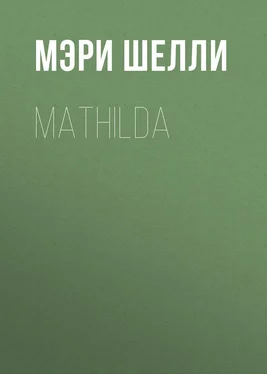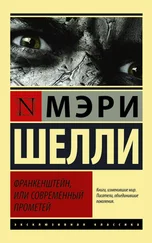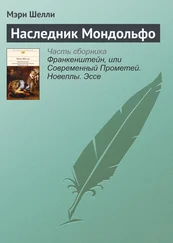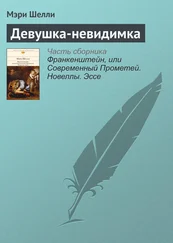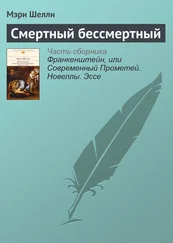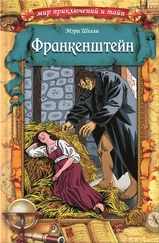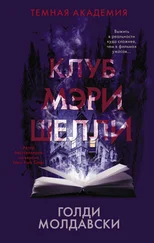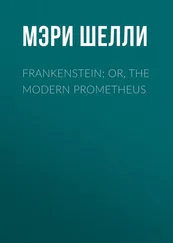Мэри Шелли - Mathilda
Здесь есть возможность читать онлайн «Мэри Шелли - Mathilda» — ознакомительный отрывок электронной книги совершенно бесплатно, а после прочтения отрывка купить полную версию. В некоторых случаях можно слушать аудио, скачать через торрент в формате fb2 и присутствует краткое содержание. Жанр: literature_19, foreign_antique, foreign_prose, на английском языке. Описание произведения, (предисловие) а так же отзывы посетителей доступны на портале библиотеки ЛибКат.
- Название:Mathilda
- Автор:
- Жанр:
- Год:неизвестен
- ISBN:нет данных
- Рейтинг книги:3 / 5. Голосов: 1
-
Избранное:Добавить в избранное
- Отзывы:
-
Ваша оценка:
- 60
- 1
- 2
- 3
- 4
- 5
Mathilda: краткое содержание, описание и аннотация
Предлагаем к чтению аннотацию, описание, краткое содержание или предисловие (зависит от того, что написал сам автор книги «Mathilda»). Если вы не нашли необходимую информацию о книге — напишите в комментариях, мы постараемся отыскать её.
Mathilda — читать онлайн ознакомительный отрывок
Ниже представлен текст книги, разбитый по страницам. Система сохранения места последней прочитанной страницы, позволяет с удобством читать онлайн бесплатно книгу «Mathilda», без необходимости каждый раз заново искать на чём Вы остановились. Поставьте закладку, и сможете в любой момент перейти на страницу, на которой закончили чтение.
Интервал:
Закладка:
Then again he distracted my thoughts from my sorrow by comparing it with his despair when he lost my mother. Even at that time I shuddered at the picture he drew of his passions: he had the imagination of a poet, and when he described the whirlwind that then tore his feelings he gave his words the impress of life so vividly that I believed while I trembled. I wondered how he could ever again have entered into the offices of life after his wild thoughts seemed to have given him affinity with the unearthly; while he spoke so tremendous were the ideas which he conveyed that it appeared as if the human heart were far too bounded for their conception. His feelings seemed better fitted for a spirit whose habitation is the earthquake and the volcano than for one confined to a mortal body and human lineaments. But these were merely memories; he was changed since then. He was now all love, all softness; and when I raised my eyes in wonder at him as he spoke the smile on his lips told me that his heart was possessed by the gentlest passions.
Two months after my aunt's death we removed to London where I was led by my father to attend to deeper studies than had before occupied me. My improvement was his delight; he was with me during all my studies and assisted or joined with me in every lesson. We saw a great deal of society, and no day passed that my father did not endeavour to embellish by some new enjoyment. The tender attachment that he bore me, and the love and veneration with which I returned it cast a charm over every moment. The hours were slow for each minute was employed; we lived more in one week than many do in the course of several months and the variety and novelty of our pleasures gave zest to each.
We perpetually made excursions together. And whether it were to visit beautiful scenery, or to see fine pictures, or sometimes for no object but to seek amusement as it might chance to arise, I was always happy when near my father. It was a subject of regret to me whenever we were joined by a third person, yet if I turned with a disturbed look towards my father, his eyes fixed on me and beaming with tenderness instantly restored joy to my heart. O, hours of intense delight! Short as ye were ye are made as long to me as a whole life when looked back upon through the mist of grief that rose immediately after as if to shut ye from my view. Alas! ye were the last of happiness that I ever enjoyed; a few, a very few weeks and all was destroyed. Like Psyche 41 41 Mary had read the story of Cupid and Psyche in Apuleius in 1817 and she had made an Italian translation, the MS of which is now in the Library of Congress. See Journal , pp. 79, 85-86.
I lived for awhile in an enchanted palace, amidst odours, and music, and every luxurious delight; when suddenly I was left on a barren rock; a wide ocean of despair rolled around me: above all was black, and my eyes closed while I still inhabited a universal death. Still I would not hurry on; I would pause for ever on the recollections of these happy weeks; I would repeat every word, and how many do I remember, record every enchantment of the faery habitation. But, no, my tale must not pause; it must be as rapid as was my fate, – I can only describe in short although strong expressions my precipitate and irremediable change from happiness to despair. 42 42 The end of this paragraph gave Mary much trouble. In F of F – A after the words, "my tale must," she develops an elaborate figure: "go with the stream that hurries on – & now was this stream precipitated by an overwhelming fall from the pleasant vallies through which it wandered – down hideous precipieces to a desart black & hopeless – ". This, the original ending of the chapter, was scored out, and a new, simplified version which, with some deletions and changes, became that used in Mathilda was written in the margins of two pages (ff. 57, 58). This revision is a good example of Mary's frequent improvement of her style by the omission of purple patches.
CHAPTER IV
Among our most assiduous visitors was a young man of rank, well informed, and agreable in his person. After we had spent a few weeks in London his attentions towards me became marked and his visits more frequent. I was too much taken up by my own occupations and feelings to attend much to this, and then indeed I hardly noticed more than the bare surface of events as they passed around me; but I now remember that my father was restless and uneasy whenever this person visited us, and when we talked together watched us with the greatest apparent anxiety although he himself maintained a profound silence. At length these obnoxious visits suddenly ceased altogether, but from that moment I must date the change of my father: a change that to remember makes me shudder and then filled me with the deepest grief. There were no degrees which could break my fall from happiness to misery; it was as the stroke of lightning – sudden and entire. 43 43 In F of F – A there follows a passage which has been scored out and which does not appear in Mathilda : "I have tried in somewhat feeble language to describe the excess of what I may almost call my adoration for my father – you may then in some faint manner imagine my despair when I found that he shunned [me] & that all the little arts I used to re-awaken his lost love made him" – . This is a good example of Mary's frequent revision for the better by the omission of the obvious and expository. But the passage also has intrinsic interest. Mathilda's "adoration" for her father may be compared to Mary's feeling for Godwin. In an unpublished letter (1822) to Jane Williams she wrote, "Until I met Shelley I [could?] justly say that he was my God – and I remember many childish instances of the [ex]cess of attachment I bore for him." See Nitchie, Mary Shelley , p. 89, and note 9.
Alas! I now met frowns where before I had been welcomed only with smiles: he, my beloved father, shunned me, and either treated me with harshness or a more heart-breaking coldness. We took no more sweet counsel together; and when I tried to win him again to me, his anger, and the terrible emotions that he exhibited drove me to silence and tears.
And this was sudden. The day before we had passed alone together in the country; I remember we had talked of future travels that we should undertake together – . There was an eager delight in our tones and gestures that could only spring from deep & mutual love joined to the most unrestrained confidence[;] and now the next day, the next hour, I saw his brows contracted, his eyes fixed in sullen fierceness on the ground, and his voice so gentle and so dear made me shiver when he addressed me. Often, when my wandering fancy brought by its various images now consolation and now aggravation of grief to my heart, 44 44 Cf. the account of the services of Fantasia in the opening chapter of F of F – A (see pp. 90-102) together with note 3 to The Fields of Fancy .
I have compared myself to Proserpine who was gaily and heedlessly gathering flowers on the sweet plain of Enna, when the King of Hell snatched her away to the abodes of death and misery. Alas! I who so lately knew of nought but the joy of life; who had slept only to dream sweet dreams and awoke to incomparable happiness, I now passed my days and nights in tears. I who sought and had found joy in the love-breathing countenance of my father now when I dared fix on him a supplicating look it was ever answered by an angry frown. I dared not speak to him; and when sometimes I had worked up courage to meet him and to ask an explanation one glance at his face where a chaos of mighty passion seemed for ever struggling made me tremble and shrink to silence. I was dashed down from heaven to earth as a silly sparrow when pounced on by a hawk; my eyes swam and my head was bewildered by the sudden apparition of grief. Day after day 45 45 This passage beginning "Day after day" and closing with the quotation is not in F of F – A , but it is in S-R fr . The quotation is from The Captain by John Fletcher and a collaborator, possibly Massinger. These lines from Act I, Sc. 3 are part of a speech by Lelia addressed to her lover. Later in the play Lelia attempts to seduce her father – possibly a reason for Mary's selection of the lines.
passed marked only by my complaints and my tears; often I lifted my soul in vain prayer for a softer descent from joy to woe, or if that were denied me that I might be allowed to die, and fade for ever under the cruel blast that swept over me,
Интервал:
Закладка:
Похожие книги на «Mathilda»
Представляем Вашему вниманию похожие книги на «Mathilda» списком для выбора. Мы отобрали схожую по названию и смыслу литературу в надежде предоставить читателям больше вариантов отыскать новые, интересные, ещё непрочитанные произведения.
Обсуждение, отзывы о книге «Mathilda» и просто собственные мнения читателей. Оставьте ваши комментарии, напишите, что Вы думаете о произведении, его смысле или главных героях. Укажите что конкретно понравилось, а что нет, и почему Вы так считаете.
